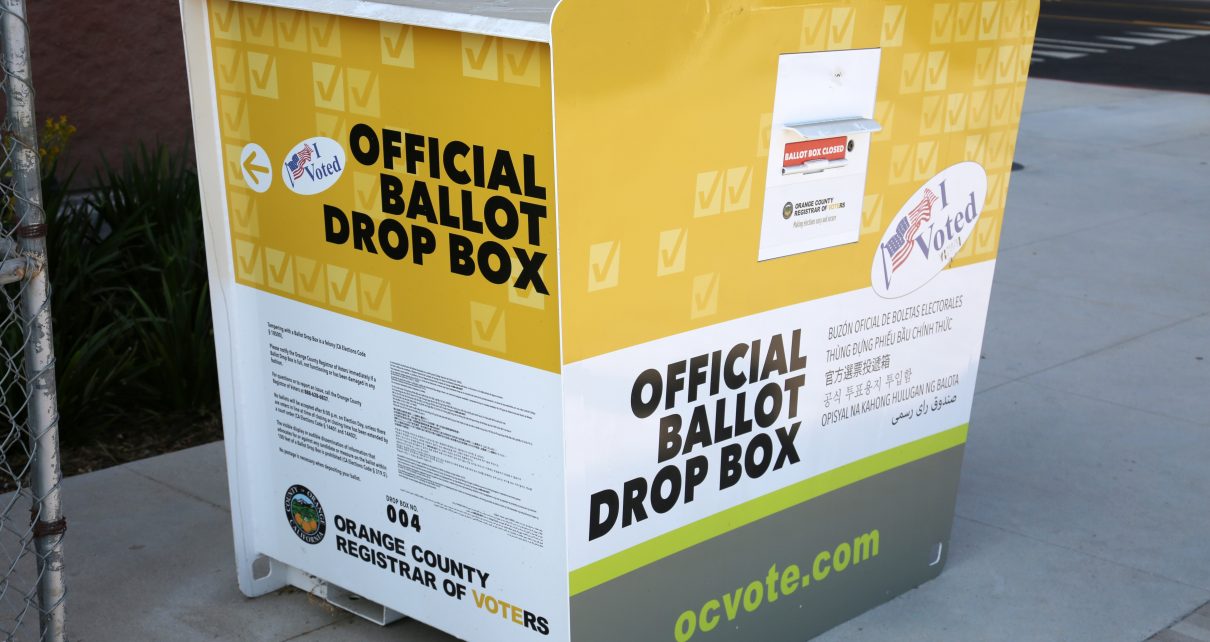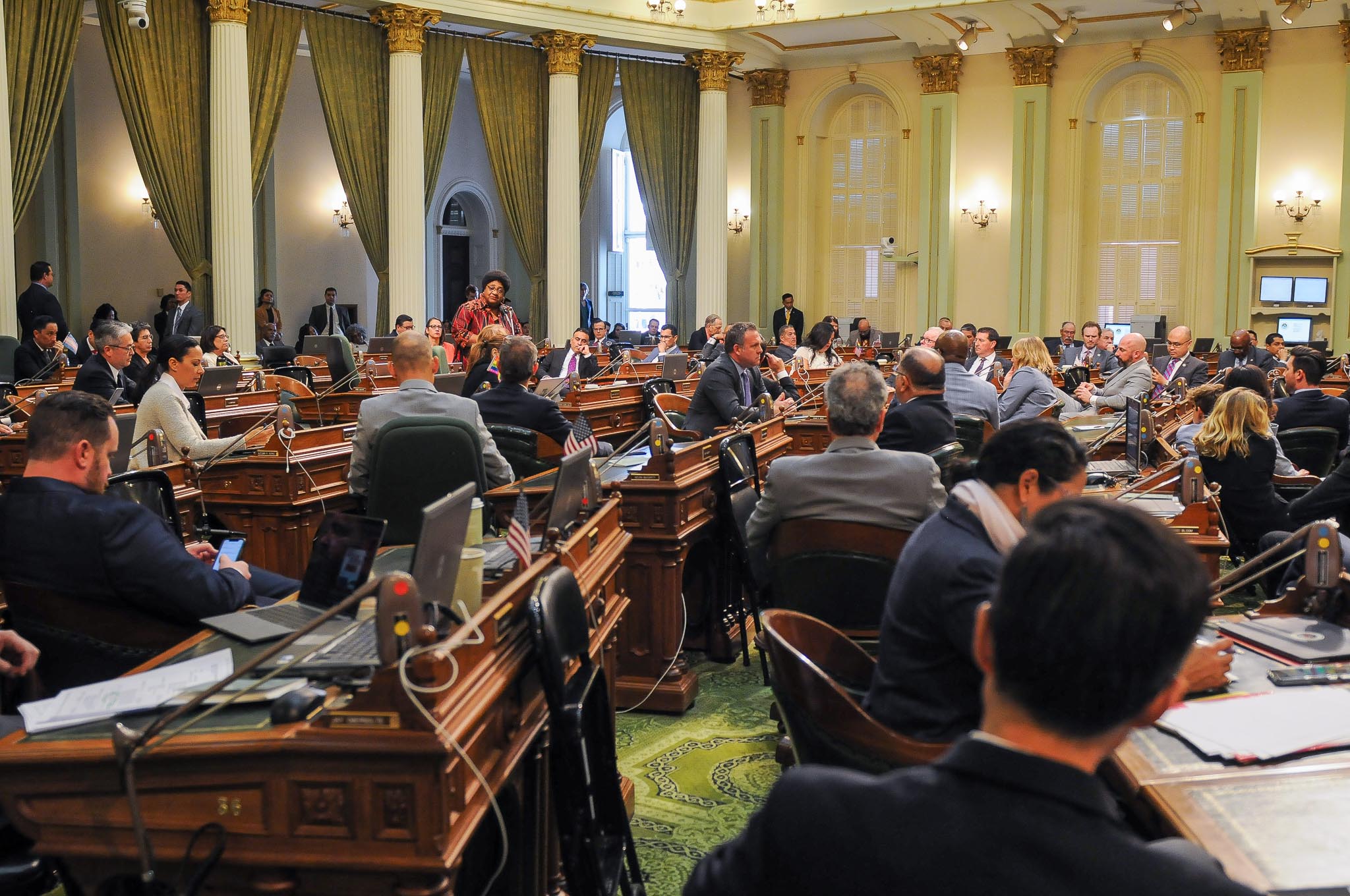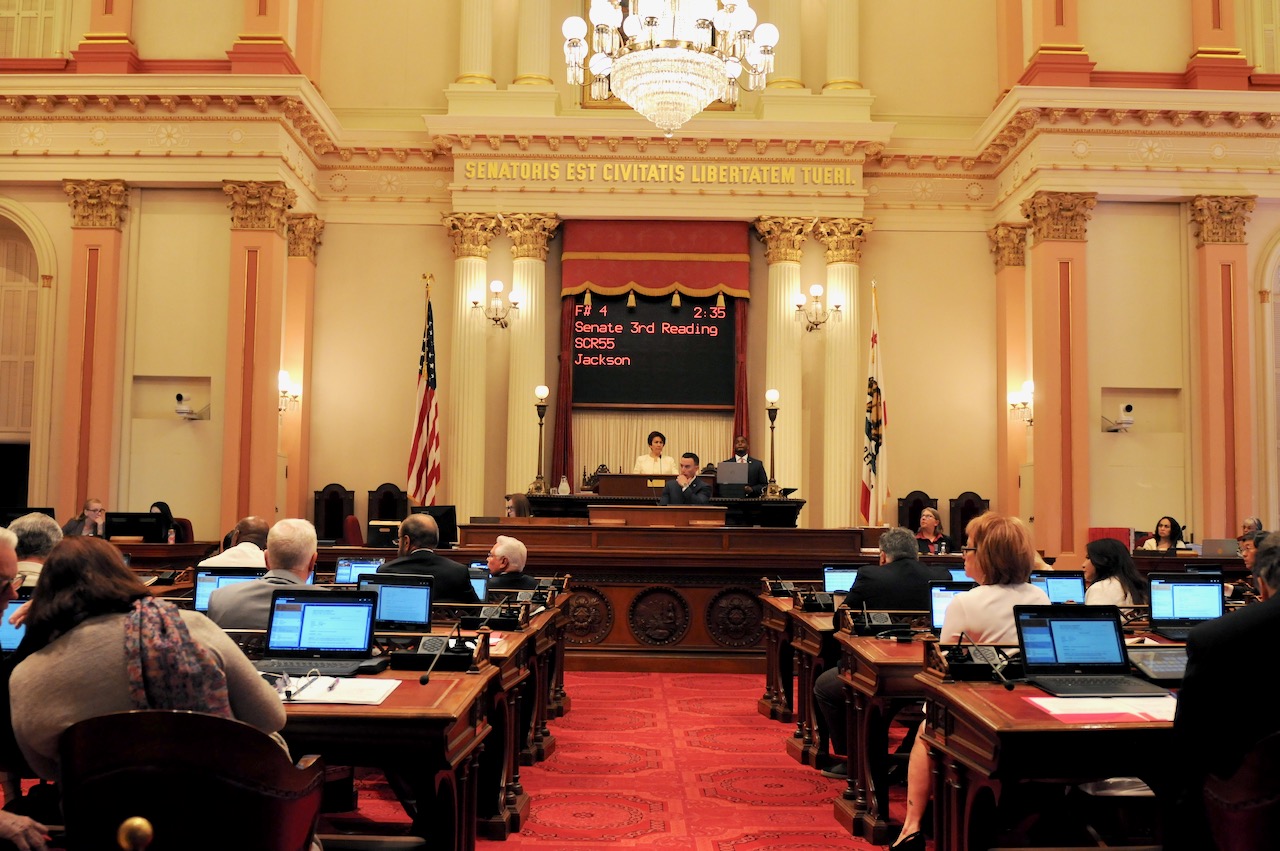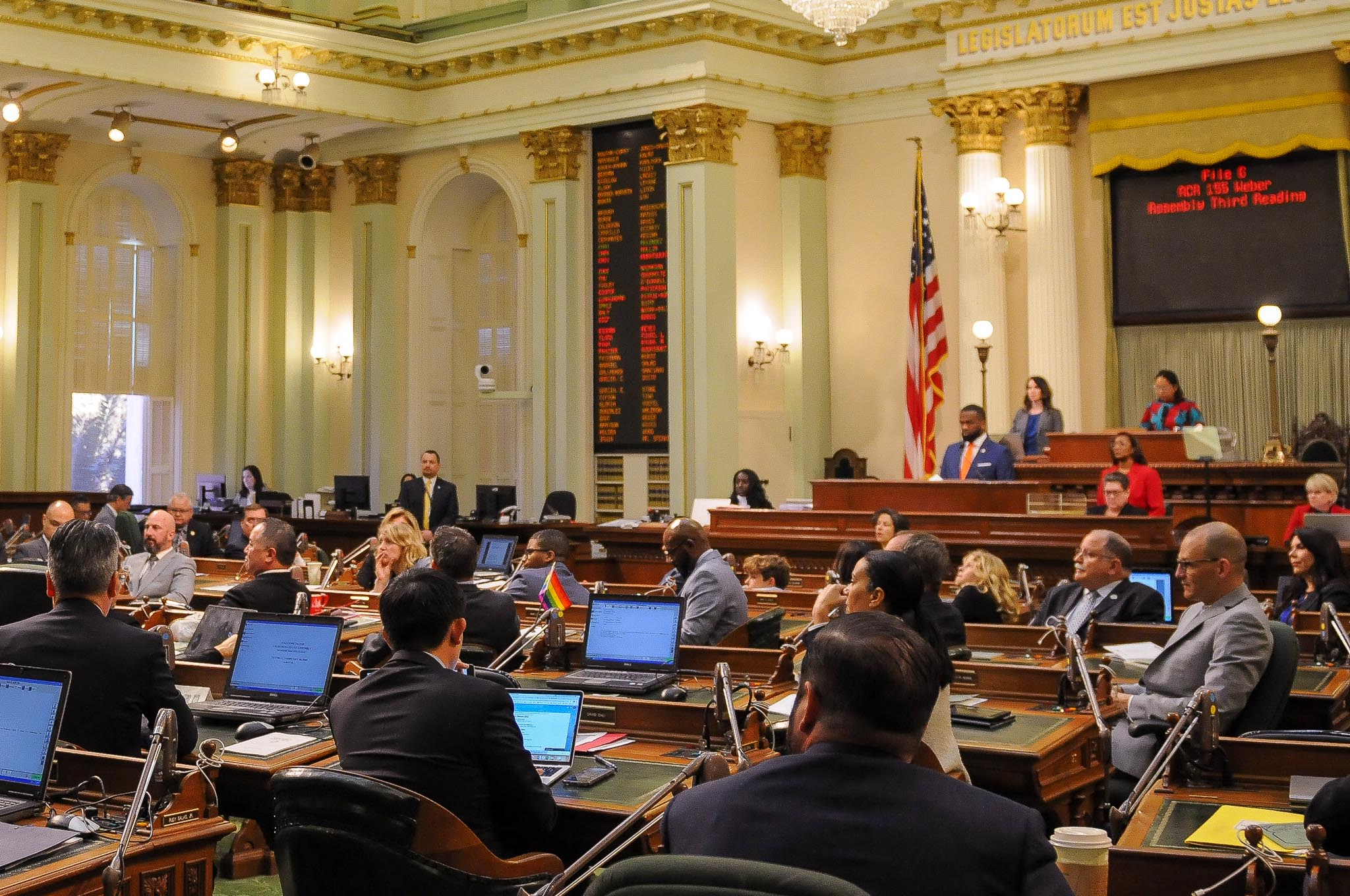
Official Ballot Drop Box placed ready to accept Voting Ballots for the upcoming election. Santa Ana, CA, Sept. 23, 2020. (Photo: mikeledray/Shutterstock)
Does the Referendum Prevail Over California Legislation?
The referendum is a tool to be utilized by the state’s electorate as a check against the lawmaking power of the legislative branch
By Chris Micheli, September 22, 2022 5:27 pm
Does a successful referendum overturn a recently-enacted statute by the California Legislature? This question is periodically raised when, such as with two bills signed into law this month by Governor Newsom, opponents of enacted legislation seek to overturn the just-concluded legislative action.
The answer to the question posed points to the inherent conflict between the powers set forth in Articles II and IV of the California Constitution. Nonetheless, the brief answer to the original question is yes.
Legislators and proponents of successfully-enacted legislation have spent the past year or more advocating for a bill that has gone through the entire legislative process, often including extensive debate and amendments, as well as votes in multiple legislative committees and on the floors of the Senate and Assembly. And so that recently-enacted statute should be sustained.
Article IV sets forth the role of the Legislature. Section 1 provides: “The legislative power of this State is vested in the California Legislature which consists of the Senate and Assembly, but the people reserve to themselves the powers of initiative and referendum.” (Emphasis added) Hence, although the lawmaking power is granted to the legislative branch of state government, that power is limited by the initiative and referendum processes.
Moreover, Article II sets forth the role of the electorate and covers voting and the three forms of direct democracy available in the State of California. Section 9(a) of Article II provides that “the referendum is the power of the electors to approve or reject statutes or parts of statutes except urgency statutes, statutes calling elections, and statutes providing for tax levies or appropriations for usual current expenses of the State.”
So, do these two provisions of the state Constitution provide a post-enactment opportunity for citizens (and, thereby, interest groups) to override the extensive work completed by the Legislature and Governor? Yes, but that is what was intended.
First, in delegating the lawmaking power to the legislative branch of state government in Article IV, Section 1 specifically states: “…but the people reserve to themselves the powers of initiative and referendum.” Clearly, the citizens have provided a split in lawmaking duties.
While the Legislature is the primary lawmaking body in this state, the electorate can also make laws (add/amend/repeal provisions of the state Constitution and state statutes) by initiative and they can repeal statutes (or even parts of statutes) enacted by the Legislature and Governor through the referendum process.
Second, Article II also grants the state’s voters the power of referendum to specifically “approve or reject” statutes or parts of statutes enacted by the legislative branch of government. And, a close reading of this constitutional provision tells us that the referendum power is granted to the people before the lawmaking power is granted to the legislative branch because it is the people’s political powers that are established in Article II, and the legislative branch’s powers are granted in Article IV.
As a result, despite the frustration that proponents of enacted legislation may feel when facing a referendum, the referendum is a tool that may be utilized by the state’s electorate as a check against the lawmaking power of the legislative branch of state government.
Finally, if a referendum qualifies after a 2-year session, the referendum does not necessarily have to wait nearly two years for a vote of the statewide electorate. That is because, while Section 9(c) provides that the Secretary of State will submit the referendum measure at the next general election held at least 31 days after it qualifies or at a special statewide election held prior to that general election, Section 9(c) also provides: “The Governor may call a special statewide election for the measure.”
Therefore, once a referendum qualifies for the statewide ballot, the Governor could call a special election for the people to vote on the referendum, and decide whether to accept or reject the statute, rather than wait until November 2024 to do so.
- Interpretation of Obligations - December 15, 2024
- Sabotage Prevention Act - December 14, 2024
- Why Would the Legislature Request? - December 13, 2024





3 thoughts on “Does the Referendum Prevail Over California Legislation?”